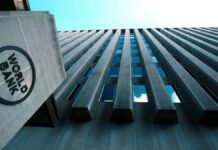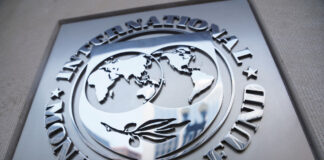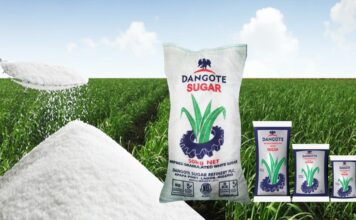Fidelity Bank Asset Quality Declines as Trouble Loans Spike
Fidelity Bank Plc’s rising impaired loans worsened the tier-2 lender asset quality, a detail from its 9-month unaudited financial statement shows. The bank posted about a 163% year-on-year increase in profit following a boost in its loan appetite.
The Tier-2 bank’s strong earnings record came with increased risks amidst rising uncertainty in the economy. Detail from Fidelity Bank Plc’s financial statement showed the lender’s earnings growth was supported by gains from forex revaluation and increased loan book.
Fidelity Bank’s 36% balance sheet expansion was driven by more than 82% increase in borrowings, driving its financial leverage higher. Loan and advance to customers grew by about 26% year on year to N2.654 trillion, according to its unaudited financial statement posted on the Nigerian Exchange website.
But loan provision and impairment charges skyrocketed by 771.9%, from N3.69 billion in 9 months of the financial year 2022 to more than N32.1 billion 12 months after. Also, the bank recorded a steep surge in derivative liabilities (as an example interest rate swap), up by 1944% year on year to about N25 billion at the end of the period, from N1.2 billion in the comparable period.
“When a derivative becomes a liability, that means the bank is in a losing position on that contract and would require money to settle it”, analysts told MarketForces Africa.
In its update on the bank, analysts at CardinalStone Limited revealed that the bank’s stage 3 loan spiked by more than 82% year on year. The investment firm attributed the steep increase in credit-impaired assets to increased loan appetite amidst Nigeria’s high-interest rate environment.
In an effort to expand its balance sheet size, and switch its market identity to Tier-1 class, Fidelity Bank recently completed the acquisition of Union Bank UK. The acquisition tightened the bank’s capital, forcing the management to raise funds via private placement which diluted shareholders’ interest.
However, equities analysts have different views. Based on their expectation of future stream of inflow, equities analysts’ ratings on the Tier-2 bank differed with buy or hold recommendations. Some analysts keep their ratings in view while making adjustments to the bank’s earnings estimates following its capital dilution.
In its recent update, CardinalStone analysts revealed that they have gone neutral on Fidelity Bank shares while Futureview Financial Services maintains a bullish position with a buy recommendation despite a tiny 4% upside on reference market price.
Fidelity Bank grew its loan book strongly in 2023, and this impacted asset quality negatively, recording 82.4% year-on-year growth in stage 3 loans at the end of 9 months of 2023 results.
Analysts indicated that the bank’s credit migration to stage 3 pushed its non-performing loans higher, though still below the regulatory benchmark of 5%. Its unaudited result for 9 months showed a 162.5% year-on-year growth in profit which settled at N91.8 billion. As a result, EPS printed at N2.87 from N1.21 in the comparable period in 2022.
CardinalStone said in an update on the bank that higher operating income (+101.7%), which was the key driver of performance, rode on the combined impact of improved non-interest revenue and net-interest income.
In the period, non-interest revenue increased by 245% year on year while net interest margin grew by 74.3% as the Tier-2 lender increased lending appetite. Its non-interest revenue was supported by the N24.9 billion in foreign exchange (FX) gain and the N19.0 billion in derivative trading gain, CardinalStone said in the report.
“Fidelity Bank gross loans grew by 33.7% year on year as asset quality deteriorated. For context, the multi-asset investment firm said that the bank’s stage 3 loans rose by 82.4%, resulting in a 1.0 percentage points increase in the NPL ratio to 3.7%”.
The bank’s profit rose by 162.47% to N91.756 billion at the end of September 2023 from N34.959 billion in the comparable period under the watch of Nneka Onyeali-Ikpe, chief executive officer.




























































































